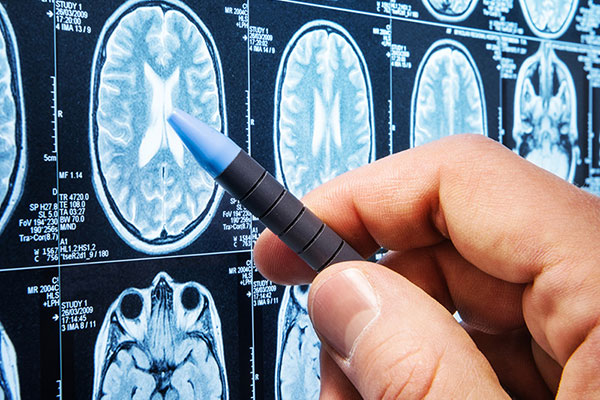PRISM 2 aims to find new treatments more quickly for the three most common brain disorders in Europe: Alzheimer’s Disease (AD), Schizophrenia (SZ), and Major Depressive Disorder (MDD), see details below. These three disorders together cost society some 312 billion € or more per year.
Alzheimer’s Disease
There are over 30 million people with dementia worldwide and will double by 2030. Alzheimer’s is the most common cause of dementia. The word dementia describes a set of symptoms that can include memory loss and difficulties with thinking, problem-solving or language.
Major Depression
Major Depressive Disorder – or short depression – is a mood disorder that causes a persistent feeling of sadness and loss of interest. It is a significant medical condition that can affect many areas of your life. It impacts mood and behaviour as well as various physical functions, such as appetite and sleep. It is a very common psychiatric disorder: 5-20% of the population suffers from depression at least once during their lifetime.
Schizophrenia
Schizophrenia is a severe neuropsychiatric disorder that affects up to 1% of the population. It occurs when the parts of the brain responsible for emotion and sensation stop working properly. The illness can develop slowly and a person may stop living their normal life, withdrawing from people, losing interest in things and possibly having angry outbursts.
Clinical Study Procedure
The total number of subjects will be comparable to those recruited in PRISM (N=160). Patients will be recruited and assessed over two days. On Day 1, the participants will be screened and complete clinical interviews, questionnaires, provide blood samples, and install the BEHAPP smartphone app; on Day 2, the electroencephalogram (EEG) and functional magnetic resonance imaging (fMRI) procedures will be performed. Please note that project partner CIBER includes two different clinical sites: The Hospital General Universitario Gregorio Marañón and the Hospital De La Princesa.
Responsibilities
Work package 3 (WP3) within the PRISM 2 project focuses on the implementation of the clinical study and its operations. It is coordinated by P1VITAL and BI. P1VITAL will ensure that WP3 is conducted to the highest standards of Good Clinical Practice (GCP), on time, and within budget, and will be responsible for the overall study management, including preparation for all documentation related to the set up and execution of the clinical trial. They will also be responsible for study setup, site training, recruitment management and completion of the clinical investigation and the development, deployment, and standardisation of relevant behavioural and functional Magnetic Resonance Imaging (fMRI) paradigms. Where possible, deployment of self-report questionnaires and behavioural tasks within the clinical trial will occur via the online P1vital ePRO clinical system as was the case in the original PRISM clinical study, ensuring high and standardised data quality and allowing easier data management across the assessment battery. P1vital will also be responsible for providing data from the clinical study to the Brain Commons platform (WP2). BIOTRIAL will be responsible for the development, deployment and standardisation of electroencephalogram (EEG) paradigms for the study. The clinical sites will be responsible for the development, deployment and standardisation of rs-fMRI and Diffusion Tensor Imaging (DTI) fMRI for the study. CIBER (study sponsor), VUMC, and LUMC will be responsible for recruitment and deep-phenotyping of all participants. BI will assist with protocol development and review and provide pre-final protocol approval on behalf of the EFPIA stakeholders. Final protocol approval will occur by the PRISM 2 Steering Committee (SC).

